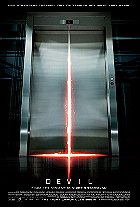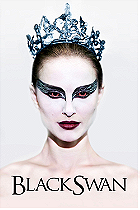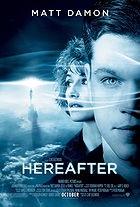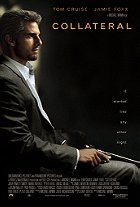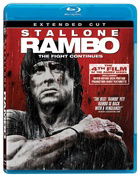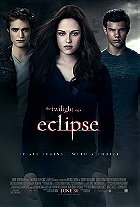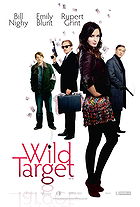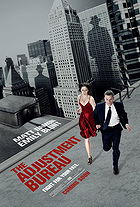With a title like Hobo with a Shotgun, surely you can easily ascertain everything you need to know about this motion picture. By no means is it an art movie, nor is it a date flick unless your date is a sick-minded gore-monger - Hobo with a Shotgun is a gleefully crazy blast of exploitative fun with the go-for-broke lunacy of your typical Troma picture. And if it sounds like it is the perfect filmic complement for the likes of Machete and Planet Terror, there is a good reason for this - the picture was born out of a faux trailer which won a fake trailer contest that was held to promote the Robert Rodriguez/Quentin Tarantino double bill Grindhouse in 2007. For the easily offended, Hobo with a Shotgun is a film to miss. But for the viewers who "get" this type of flick, Hobo with a Shotgun is a welcome buckshot of grindhouse-style insanity. This is a flick destined to tickle the pleasure centres of those who grew up sifting through the most bizarre, offensive-looking VHS boxes at their local video store.

As the film commences, the grizzled titular Hobo (Hauer) hops off a fright train with the intention of finding a new home and earning money by starting a lawnmower business. However, his chosen town is a scummy hellhole of sadists and whackjobs which is ruled with an iron fist by crime lord Drake (Downey). Drake and his ghouls own the town and the police force, leaving the Hobo disgusted and aching for change. In the shoot-'em-up tradition of Death Wish and Clint Eastwood's Man With No Name westerns, the Hobo starts dispensing justice throughout the town with his shotgun; punishing criminals quickly and violently. A newspaper headline even screams "HOBO STOPS BEGGING, DEMANDS CHANGE". During his quest he also befriends Abby (Dunsworth), a hooker with a heart of hold who provides the human contact he's been craving.
Running at approximately 85 minutes, Hobo with a Shotgun never slows down to the point where the story is tedious or boring. The pacing was well-judged by director/editor Jason Eisener, to the point that the film never lulls but doesn't feel underdone either. The Hobo and his plight are efficiently established within the first act, which allows Eisener the freedom to begin filling the screen with gory imagery of hyperbolic proportions. Morality is swiftly disregarded, but there's fun to be had for those willing to take a trip into this gleefully hedonistic world. Bodies are blown apart, heads are blown off, people are decapitated, wedding tackles are shredded with buckshots, and so on. Interestingly, while Hobo with a Shotgun is replete with sadistic sequences to ward off the easily offended, there is witty dialogue throughout the film in addition to unexpected sentiment and a few smart yet bizarre monologues delivered by the Hobo. Plus, the purposely bad dialogue is hilarious. Unfortunately, the sole flaw of Hobo with a Shotgun is that it only triggers a giddy impression in places. Too often, a metric fuckload of viscera is thrown all over the place, generating a disturbing feeling of sadism as opposed to an aura of schlocky merriment. When the film works, it works. When it fails, however, the film is uncomfortable and borderline agonising.

Eisener evidently grew up watching the low-budget exploitation movies of the '70s and '80s, and consequently replicated the old-school cinematic style with an impressive attention to detail. An opening credits sequence straight out of the '70s prefaces Hobo with a Shotgun, with a copyright date under the title and a Technicolor credit. Eisener and cinematographer Karim Hussain shot the film in vivid Technicolor, meaning the flesh tones appear almost orange and the geysers of blood are deep red. The histrionic, occasionally shoddy camera angles further solidify the aesthetic. Indeed, with these techniques in place, Hobo with a Shotgun possesses the look of a picture which has been sitting in a vault for 30 years. Heck, even the musical score is spot-on. See, Eisener opted for a different type of grindhouse aesthetic - while Robert Rodriguez and Quentin Tarantino used scratched prints and missing frames for their throwback films, Eisener chose over-the-top camera angles and a retro colour palette, which affords Hobo with a Shotgun with a sense of freshness.
Of course, the key to pulling off a film like Hobo with a Shotgun is playing it with a straight face. Luckily, Rutger Hauer was recruited to play the titular Hobo, and the iconic veteran actor was up to the challenge. Hauer is simply excellent, and not just by action film standards - in fact, Hauer is more nuanced than all the cast members of Inception combined! Hauer shows in his performance that he knows what the joke is but he also knows not to let it show - he never winks at the audience, but he is not clueless; he gets it. Alongside Hauer is the gorgeous Molly Dunsworth, who submitted one hell of a performance as the kind-hearted Abby. Naturally, a film of this type needs colourful, over-the-top villains. Fortunately, as the bad guys, Brian Downey, Nick Bateman and Gregory Smith were all up to the task. The majority of the performances here are loud, clunky, obvious and exaggerated. Are these good actors pretending to be bad for the sake of the aesthetic, or are they just bad? It's a testament to the film's success that the answer to this is not obvious, and it doesn't matter either way.

In final analysis, Hobo with a Shotgun has more going for it than not. When it's not uncomfortable to watch, the film is a hoot. These days, genre fans have become accustomed to seeing studio action films getting neutered to service a large audience. Meanwhile, 2011's Hobo with a Shotgun is exploitative trash cinema through and through which gives fans exactly what they crave with none of the restraint. That is something which does not happen often. Here's hoping Jason Eisener and writer John Davies will add a few more bloody classics to the trash cinema genre in future years.
7.3/10
 Login
Login
 Home
Home 183 Lists
183 Lists 1670 Reviews
1670 Reviews Collections
Collections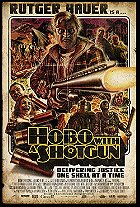
 0 comments,
0 comments, 
